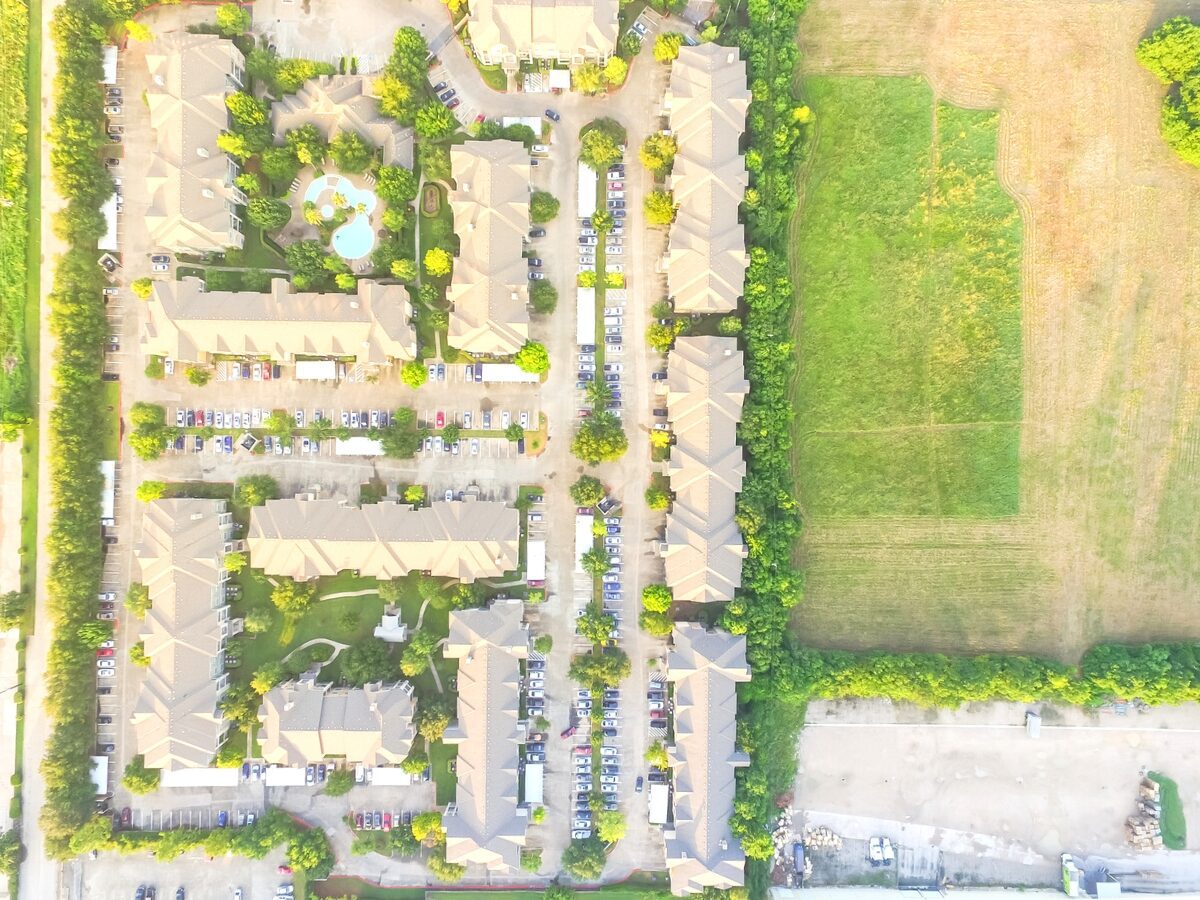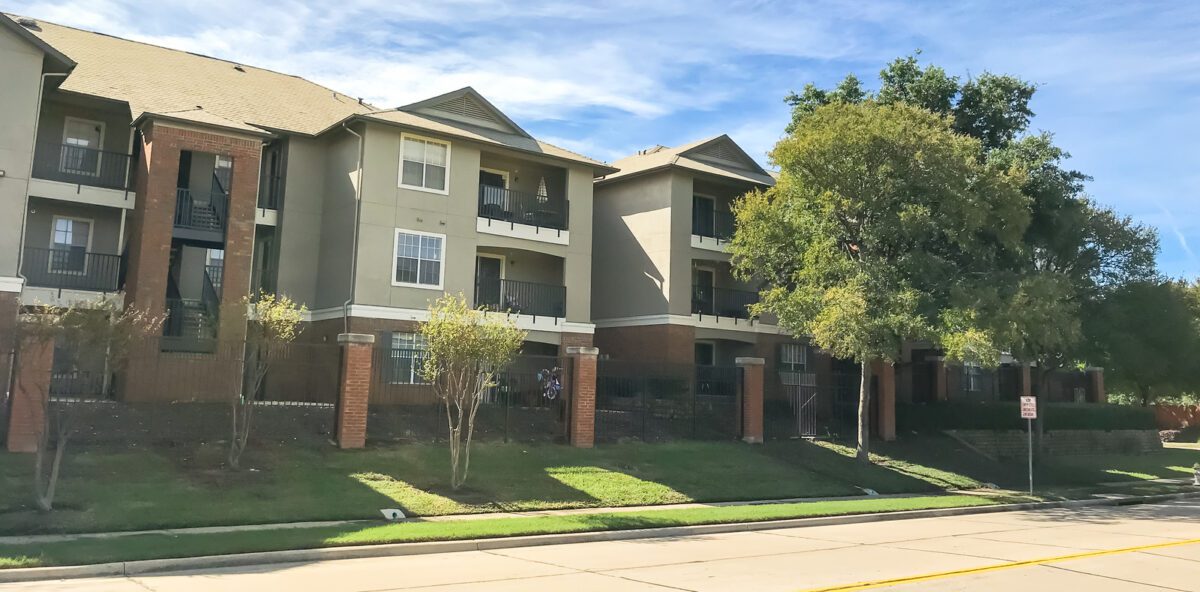Share the post "A Look at Property Tax in Texas: Facts and Figures"
Paying taxes is unavoidable, and property tax is one of the types of tax people dread having to pay. Property tax is calculated according to the county you reside in, and each county will have different property tax rates.
But how does Texas compare to other states with property tax, and does Texas have property tax?
Texas does not have state property tax but does have property tax. The property tax in Texas is determined by local taxing units that collect the property tax. Property taxes are heavily relied upon to support local services like police stations, schools, and roads.

Is Texas Property Tax-Free?
Texas is not property tax-free, and the average property tax rate in Texas is 1.80%. Texas also has the seventh-highest property tax rate in the United States. While this may seem like a steep amount for tax, taxes are not as bad as you think in Texas. Besides property tax, there are a few other taxes you should be aware of in Texas.
- Sales tax 6.25% – 8.25% on most items, excluding medication and groceries
- Hotels 6% of your accommodation cost
- The franchise tax rate in Texas is 0.375%
- Gas 20¢ per gallon
Texas has many counties, and each county will have a different property tax rate. Counties with the lowest property tax include Ward country, Terrell County, Upton country, Zapata County, and Zavala County.
Do You Have To Pay Property Tax On Homes In Texas?
When you buy a home in Texas, you are liable to pay property tax. Even when your home is paid off, you must pay property tax. Property tax on homes is either paid through a mortgage escrow account or paid once yearly.
Most homeowners set up an escrow account for their property tax. From this account, a fee will be deducted each month to cover property tax. Unfortunately, property tax is something that needs to be paid for a lifetime, and payments are still due even if the owner of the house passes away.
Once you purchase a house and have signed all necessary documentation, you’ll likely pay three months’ worth of property tax before moving into your new home.
Which Texas County Has The Highest Property Tax Rate?
Fort Bend has the highest property tax in Texas. Fort Bend has a property tax rate of 2.3%. This tax rate is roughly double the average property tax rate in the entire U.S. Other Texas counties that also have high property tax rates include Web County (2.22%), El Paso County (2.22%), and Tarrant County (2.16%).
Cities and metropolitan areas have higher property taxes compared to the suburbs. However, those that reside in counties near major cities like Dallas, Austin, and Houston pay less property tax than those in the city.

Why Is Property Tax In Texas Higher?
Texas does not have a state income tax and relies on property tax to cover government services like libraries, schools, community centers, and roads. Property tax also pays the salaries of essential workers like firefighters.
Local governments also set taxes, and as the value of properties increases, so does the property tax. The three most significant reasons why property tax in Texas is higher include the following:
Texas Needs Revenue From Property Tax
Texas does not have personal income tax and has a meager sales tax rate. This means that the other forms of taxation must cover all government-related services and operations, and property tax makes up a considerable percentage of this.
If the property tax rate were lowered to the national average, local governments would have to impose another tax fee to compensate for the loss in money generated from property tax.
This shortfall will likely need to be corrected by introducing state income tax and increasing sales tax.
Local Governments Set Property Tax
The amount that residents in Texas are required to pay for property tax is set by the local government in each county. Texas, as a state, does not decide on the property tax rate.
Instead, the amount you need to pay for property tax is calculated using the property’s value, which includes the land and the buildings on the ground.
Assessors value the property and charge the owner the appropriate amount of tax set out by the local government.
The Value Of Properties Are Increasing
The value of properties is on the rise, which means that the amount you pay for property tax is likely to increase. This annual increase can be challenging for most homeowners, and some may even find that the property appraisal value is incorrect and they are paying too much property tax.
The appraisal district appraises the value of properties each year and then determines the property tax. If you feel your home has been incorrectly appraised, you can lodge a complaint and get your home re-evaluated so you can pay the correct amount of property tax.

Facts About Property Tax In Texas
Understanding property tax can seem daunting, and it can be challenging for new homeowners to grasp how it works. However, there are a few essential facts that you need to know about property tax.
1. Most of the property tax is paid to the school district
2. If your appraisal value goes up, you pay more property tax
3. You pay less property tax when the tax rate is lowered
4. There are property tax exemptions
Most Of The Property Tax Is Paid To Schools
The majority of property tax gets paid to support local public schools. Nearly all Texas school districts receive funding, and the Texas constitution authorizes counties to levy property taxes. Texas property values have also increased, which means more funding for the school district.
In 2007 Texas implemented a Property Tax Relief Fund to help supplement the amount spent on education and lower the property tax rate. Despite this, the property tax growth rate is highly susceptible to fluctuations and increases and decreases based on the economy.
Increasing Appraisal Value Can Increase Your Property Tax
When considering refinancing your home or wanting to sell it, you may have an appraisal done to evaluate the value of your home. There is one concern about doing this, that is, it may cause your property tax to increase.
In some instances, your property tax may remain the same, and you won’t need to pay a higher tax rate, but if you’ve carried out a few renovations and improved the value of your home, it could increase your property tax.
You Pay Less Property Tax When The Tax Rate Is Lowered
If the property tax rate is lowered, you may pay less this year than you did last year. The taxpayers association estimates that 30%-60% of homes in the U.S. pay too much property tax. If your home falls into this category, you can submit the relevant paperwork to get your home reassessed.
There Are Property Tax Exemptions
The Texas legislature has set out exemptions when paying property tax. These exemptions are for those over age 65, disabled individuals, and disabled veterans. The legislature has roughly 100 tax exemptions; navigating through them can be difficult.
Some people may also receive a partial exemption. Exemptions must be applied for, which can only be done once a year.

How To Lower Property Tax In Texas?
No one likes to pay taxes, and luckily there are ways you can reduce the amount you pay for property tax.
- Check your appraised value. Is the appraised value of your property too high? An in-depth review of the notice of appraised value can help lower your property tax. If the appraised value is incorrect and has listed more bedrooms, bathrooms, and living areas than your existing home has, you can query this and possibly reduce your property tax.
- Use home renovations to your advantage. If your home needs repairs, it automatically reduces your home’s market value. You can submit your home renovation quotes and supporting documents to reduce your property tax.
- Use comparable sales. What is the value of other homes in your neighborhood? Is yours similar? Contact your realtor to determine the value of the houses in your community. If your house is valued much higher but is mostly the same size and is on the exact size of land as the other homes, you can contact the appraisal district and query your property tax.
- Get an assessor to assess your home. Appraisers occasionally carry out assessments. Should an appraiser want to evaluate your home, it’s an excellent opportunity to walk them through it and point out defects that can lower your home’s value, such as cracks, roof leaks, and blocked gutters.
FAQs About Property Tax In Texas
Although Texas ranks high for property tax compared to other states, homeowners can avoid paying very high rates if they reside in suburban areas. The zero-income tax rate does help, but many find that the property tax rate is still too steep.
A few more critical questions about property tax include how often you must pay it. Why does property tax go up? And is it possible to lower property tax in Texas?
When Do You Pay Property Tax In Texas?
Texas’s property tax must be paid once a year, but many homeowners opt to make monthly payments. Monthly payments are made via an escrow account through your mortgage company.
Why Does Property Tax Go Up?
The property tax you need to pay is based on the value of your home. When the value of your home increases, so does the property tax you need to pay.
Other factors can also increase your property tax; these include home renovations, moving to a new county, an increase in sales of homes in your area, state budget, and supplemental tax.
It is important to note that as your property tax increases, it can also come down.
References:
- Does Texas have property tax: controller.texas.gov
- Exemptions for senior taxpayers in Texas: texasattorneygeneral.gov
Share the post "A Look at Property Tax in Texas: Facts and Figures"
Christian Linden is a seasoned writer and contributor at Texas View, specializing in topics that resonate with the Texan community. With over a decade of experience in journalism, Christian brings a wealth of knowledge in local politics, culture, and lifestyle. He holds a Bachelor's degree in Communications from the University of Texas. When he's not writing, Christian enjoys spending weekends traveling across Texas with his family, exploring everything from bustling cities to serene landscapes.











